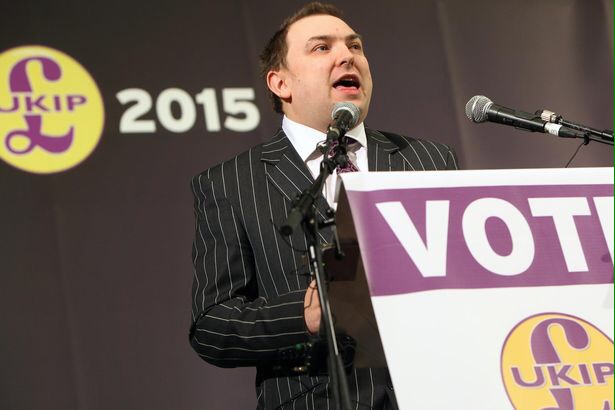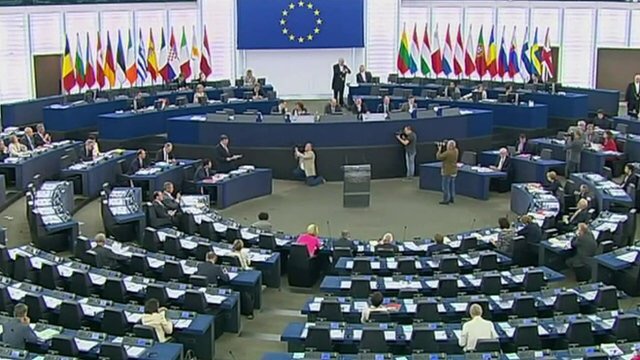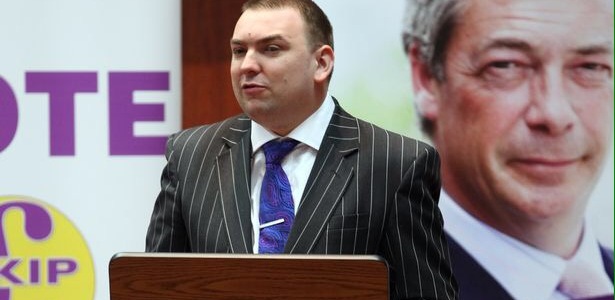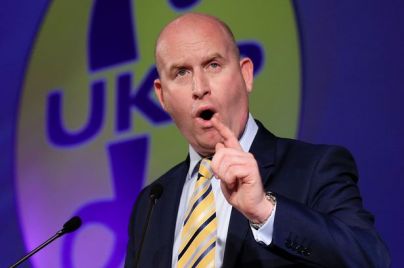My second interview is with the former UKIP General Secretary, Jonathan Arnott, who explains what Brexit will mean for young people from a different point of view.
Were you surprised by the result of the EU referendum?
I was expecting a vote for Leave about 10 days before the referendum. The polls were starting to show a significant lead for Leave, and all the momentum was in our direction.
On the night, I was thinking that things might just have slipped the other way. I wasn’t seeing quite the same amazing reaction when out campaigning, and I was worried that people would get cold feet and vote to stick to the status quo.
When the first result was declared, in Newcastle, I became very confident. We expected to get 43-44% of the vote in Newcastle if the race was going to be close, but we got 49.3%. That was the point at which I started to believe we were most likely to win, although the bookies still expected us to lose at that point!
How will the result benefit young people?
I get questions like this a lot, and actually I don’t agree with the premise of the question too much. Not all young people are the same, and what’s good for a young person in the world of work may be very much different for what’s good for a young person at university, or a young person who’s just started a family.
It’s not possible to completely separate ‘young people’ from the rest of society in that way. I’m asked this a lot in terms of universities, where I think a fairer system – one which doesn’t discriminate between EU and international students, perhaps a little tougher for EU students and a bit less tough for non-EU students – might be a little fairer and less discriminatory.
I’ve seen young people looking for work who have struggled because of the unlimited immigration from the EU; that’s only the case in certain sectors, but if someone comes to the UK who is experienced, qualified and prepared to work here on minimum wage (because it is still a huge pay rise from their home country), then they are likely to get a job and it makes it harder for young people to get their first step on the career ladder.
But the bottom line, I think, is that Brexit will give us the chance to govern ourselves again. In one way it is reasonable to talk about ‘young people’ in general: young people are the future. A future after Brexit gives us the chance to develop our trade links with a wider world, to stop focusing on the 440 million citizens of the EU27 and to look at the 6.5+ billion across the rest of the world. The ability to shape our destiny is a powerful thing.

Now that Britain has left the ‘undemocratic’ EU, will UKIP campaign to reform the unelected House of Lords?
I have said many times that I believe we need electoral reform in this country. That means reforming the House of Lords to make it elected, introducing a fairer voting system in Westminster and more direct democracy. It means devolution of power as close as possible to the citizen. That’s pretty much a UKIP view, though maybe I feel more strongly about this than many other people in UKIP do.
Will we still have free healthcare abroad and freedom of movement now we’ve left the EU?
All of this depends on the deal which we negotiate with the EU.
We don’t have free healthcare abroad at the moment. For example, friends of mine were visiting Belgium when their son had an accident and broke his ankle. The medical treatment was very good, and they had the appropriate EHIC card, but they still received a medical bill for several hundreds of euros. Similar situations exist in other countries.
It’s a reciprocal arrangement which is good for the people of the UK. But we also have these kinds of arrangements with a number of other countries worldwide, from Serbia to Australia and New Zealand via Barbados.
I want the arrangement we have at the moment to continue, but of course Norway and Switzerland both have deals that include the healthcare agreement. So basically we’ll keep the healthcare arrangements if we either a) Remain in the EEA, b) Rejoin EFTA, or c) negotiate a reciprocal agreement with the EU.
As for freedom of movement, I want us to keep visa-free travel access to the EU (like we have with 100+ countries worldwide already). I don’t see that as being a problem, because it’s just as much in the EU’s interests for that to continue as it is in ours.
If you mean free movement of workers though, that’s a euphemism for unlimited immigration from the European Union. This has a negative effect in my view. Immigration is a good thing as long as it’s controlled, but the free movement of workers rule in the EU prevents that control. It leads to distortions in the market, and has a negative impact on jobs and causes wage compression in some unskilled and semi-skilled sectors.
I want to see us be able to control who comes to live and work here from the European Union. Whether that happens depends upon the deal that’s negotiated between us and the EU.
Will you stand as an MP after you’ve left your job as an MEP?
I haven’t decided yet, although it might be nice to sit in a proper Parliament! I think I’ll have to wait and see what happens.
When I say proper Parliament, the problem with the European Parliament is that MEPs have so little power: we’re really little more than an amending chamber. We don’t have the right to initiate legislation, speaking time is so strictly controlled that my microphone is often cut off after 60 seconds (some debates last as little as 5 minutes), and there are times when I’ve voted 1,000+ times in 3 days – how can anyone possibly be an expert in everything they’re voting on in a system like this?
Westminster has its faults, but they’re not a patch on the problems in Brussels/Strasbourg.

Which candidate for the Conservative leadership would you like to see negotiate Britain’s exit from the EU?
A difficult question to answer before we know who the candidates actually are, and I haven’t decided who I would prefer (I’m not a Conservative, so I don’t exactly have a vote or a vested interest), but here’s what I’m thinking so far. Not Boris. It’s just a gut feeling, but I’m not sure I’d trust him as PM. Grayling, Crabb and Hunt don’t exactly inspire me, Liam Fox is possible and would be a safe pair of hands maybe. Andrea Leadsom impressed on the TV debates and would be a possibility. I could see them perhaps choosing Theresa May as a unity candidate. She supported Remain but is quite critical of the European Union. If she gets the support from both sides of the party, she might well win.



